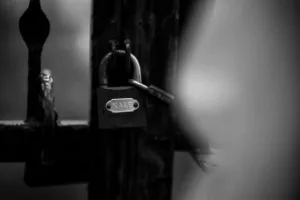
The former Chairman of the UK’s Defence Select Committee, Tobias Ellwood, has issued a stark warning about the escalating threat posed by Russia, drawing parallels to the geopolitical tensions of 1938. In an interview with GB News, Ellwood highlighted that Britain is facing “daily” hybrid attacks, including cyber operations, disinformation campaigns, and interference with undersea infrastructure. These remarks align with broader concerns among Western leaders about Russia’s aggressive tactics and the need for stronger deterrence.
TL;DR: Key Points
- Hybrid Warfare: Russia conducts daily cyber attacks, disinformation, and infrastructure targeting against the UK.
- Historical Parallels: Experts compare current tensions to pre-WWII instability, citing weak Western deterrence.
- Policy Implications: Calls for increased defense spending and resilience measures to counter Russian threats.
Russia’s Hybrid Warfare Tactics
Ellwood emphasized that Russia’s aggression extends beyond conventional warfare. The UK faces persistent cyber attacks aimed at critical infrastructure, government systems, and private sector networks. Disinformation campaigns further destabilize public trust, while undersea cable disruptions threaten global communications. These tactics mirror pre-WWII strategies where Nazi Germany tested Western resolve through incremental aggression.
Estonian Prime Minister Kaja Kallas reinforced this sentiment, stating,
“If aggression pays off, it invites more.”
This underscores the need for proactive measures to counter Russian influence before conflicts escalate.
Technical Implications for Security Teams
For security professionals, the focus should be on:
| Threat Vector | Mitigation Strategy |
|---|---|
| Cyber Attacks | Enhance network monitoring, patch critical vulnerabilities, and deploy intrusion detection systems (IDS). |
| Disinformation | Implement threat intelligence feeds to track propaganda campaigns and educate stakeholders. |
| Undersea Cable Vulnerabilities | Collaborate with ISPs to diversify routing and monitor for physical tampering. |
Historical Lessons and Modern Deterrence
Ellwood’s reference to 1938 invokes the Munich Agreement, a failed attempt to appease Nazi Germany. Today, experts warn that fragmented Western responses to Russia and China’s “CRINK” axis (China, Russia, Iran, North Korea) risk repeating past mistakes. The UK’s National Cyber Force and NATO’s cyber defense initiatives must prioritize resilience to avoid being outpaced by adversarial innovation.
Conclusion
The warnings from Ellwood and other leaders highlight an urgent need for coordinated defense strategies. As hybrid threats evolve, organizations must adopt proactive security postures, leveraging intelligence-sharing and hardening critical infrastructure. The parallels to 1938 serve as a reminder: complacency invites escalation.
References
- “[Ukraine peace deal warning as Britain ‘vulnerable’ to Russia’s ‘daily’ attacks](https://www.gbnews.com/news/ukraine-peace-deal-warning-britain-vulnerable-russia-daily-attacks)”. GB News. [Accessed 2024].
- “[Estonian PM Kaja Kallas on Russian aggression](https://www.tandfonline.com/doi/full/10.1080/14782804.2025.2472617?src=)”. [Accessed 2024].
- “[Western deterrence gaps against CRINK axis](https://www.britainsworld.org.uk/p/the-big-ask-17-2024)”. [Accessed 2024].





